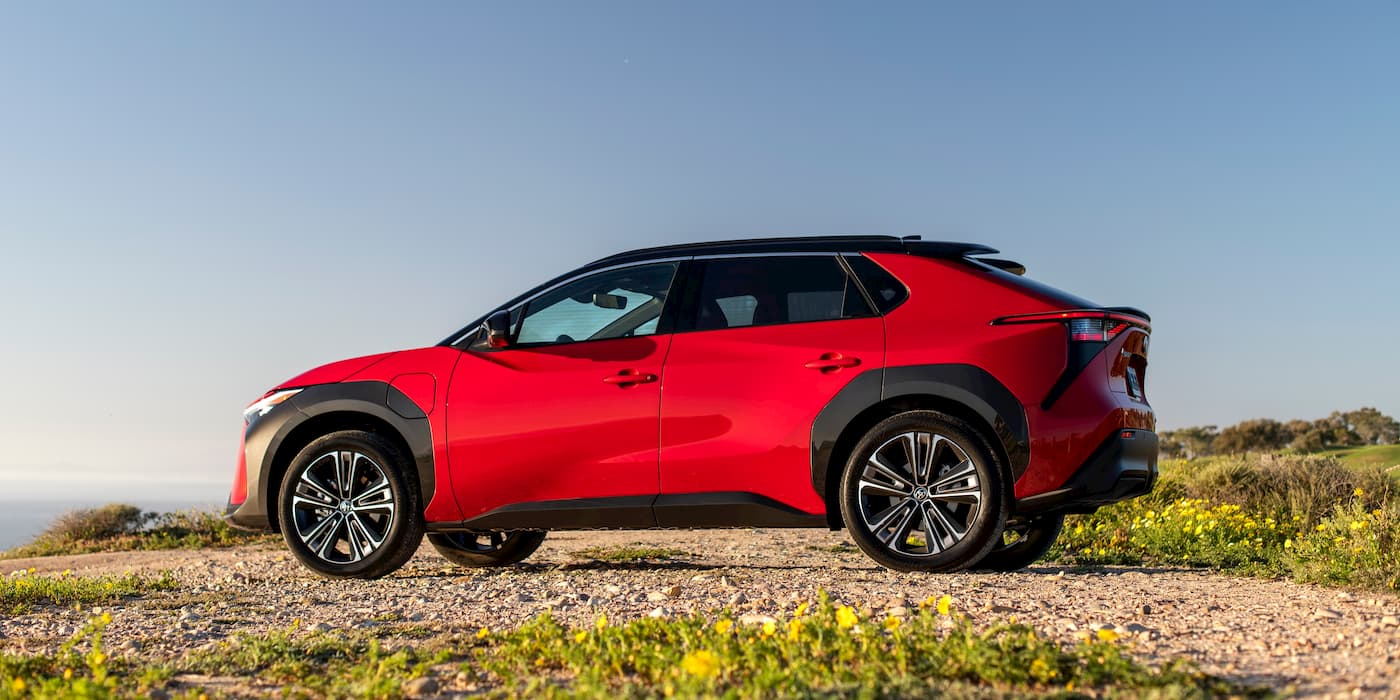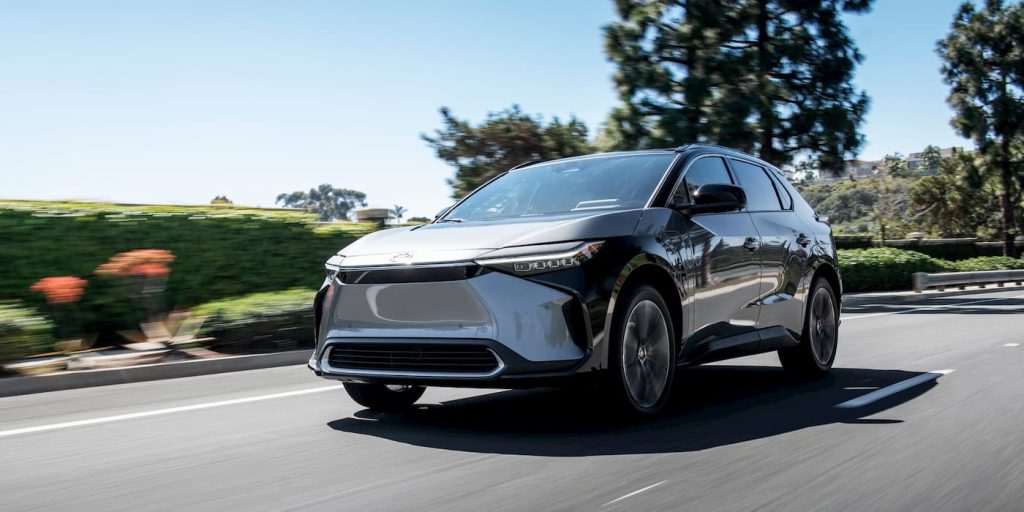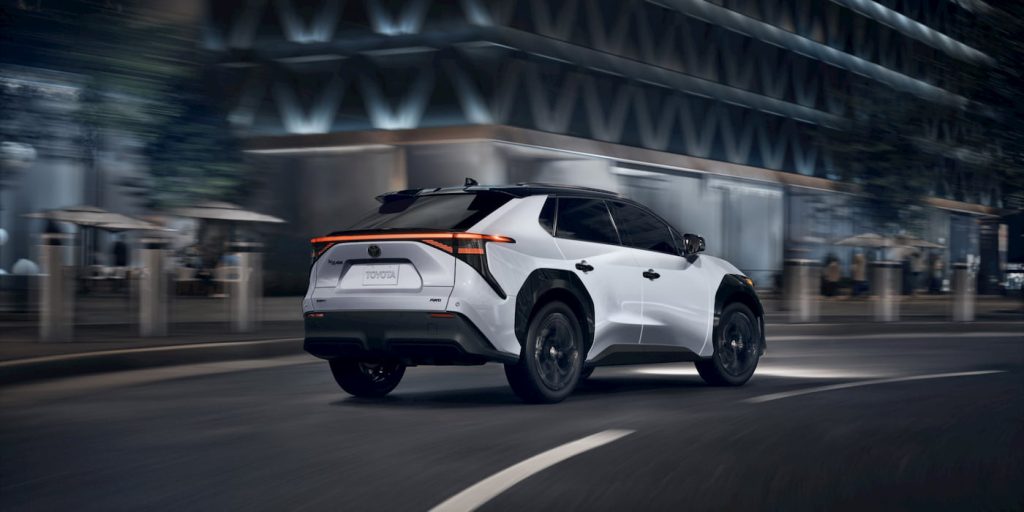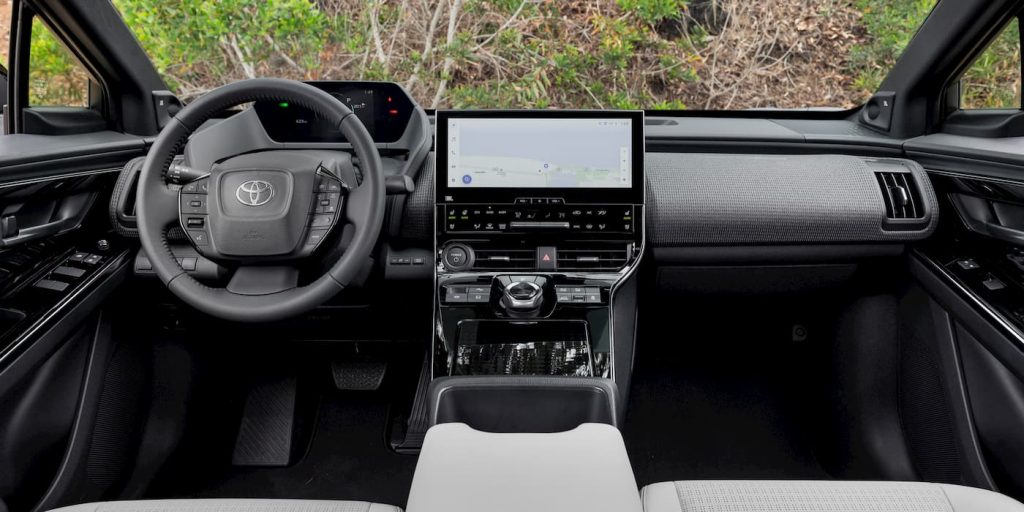
Although Toyota bZ4X sales nearly doubled last year, the auto giant is still falling behind in the US EV market. Overseas rivals like Hyundai and Kia are lapping Toyota. Even other Japanese automakers, including Honda and Nissan, are selling more EVs in the US than Toyota.
Toyota bZ4X sales lagged behind US EV rivals in 2024
Toyota boasted that its 2024 electrified vehicle sales reached over 1 million in the US in 2024. However, that’s primarily thanks to its hybrid models.
With just 1,854 bZ4X models sold in December, Toyota’s 2024 total reached 18,570. Although that number is up 99% from the 9,329 sold in 2023, it’s still far behind the competition.
To put it in perspective, Honda, which began delivering its electric Prologue last March, sold over 33,000 models last year. In December, Honda sold nearly 7,900 Prologues alone. During the second half of 2024, Honda sold an average of over 5,000 electric SUVs per month.
Nissan also outsold Toyota with nearly 19,800 Ariya electric SUVs sold last year. Nissan’s decade-old LEAF secured another 11,226 sales in the US in 2024, up 57% year-over-year.

Kia’s first three-row electric SUV, the EV9, outsold the bZ4X last year despite a +$10,000 higher MSRP. After deliveries began in late 2023, Kia sold over 22,000 EV9 models in the US last year.
After setting new US sales records last year, Hyundai and Kia are aggressively aiming for more EV market share in 2025. Hyundai began production at its massive new EV plant in Georgia, where it will produce new EVs like the upgraded 2025 IONIQ 5 and three-row IONIQ 9.

With Kia building EV9 models at its West Point plant and the Genesis Electrified GV70 built in Alabama, Hyundai Motor has five EV models that qualify for the $7,500 federal tax credit for the first time, which should boost demand further.

Toyota slashed 2025 bZ4X prices by $6,000 to make it more competitive. Starting at $37,070, the 2025 bZ4X undercuts the 2025 Hyundai IONIQ 5 ($42,500) and Nissan Ariya ($39,770).
Although Honda has yet to release 2025 Prologue prices, it’s expected to start much higher. The 2024 Honda Prologue starts at $47,400.
Electrek’s Take
Like several others, Toyota pushed back major EV projects, including its first three-row electric SUV. The delay gave overseas rivals, like Hyundai and Kia, an opportunity, which they gladly took advantage of.
Toyota also scrapped plans to build new Lexus electric SUVs in North America. Instead, the new Lexus EV models will be imported from Japan.
Top comment by Tim
The way this thing was designed - so ungainly - it's as if they wanted it to fail.
The company is preparing to start battery production at its new $13.9 billion facility in NC, which should help ramp up EV sales. In the first half of 2026, it will also begin building the larger electric SUV at its Georgetown, Kentucky, plant.
The Japanese auto giant is still promising advanced new EV batteries are coming soon with significantly more range and faster charging at a lower cost. But when will they actually hit the market?
Toyota has been vowing to launch new EV battery technology for years. By 2027, the company plans to launch a pair of new Performance and Popularized batteries, which will enable a nearly 500-mile (800-km) WLTP range. In 2028, Toyota plans to launch solid-state EV batteries with mass production in 2030.
Will it be enough? Or is Toyota already too late to the party? Let us know what you think in the comments below.
FTC: We use income earning auto affiliate links. More.



Comments